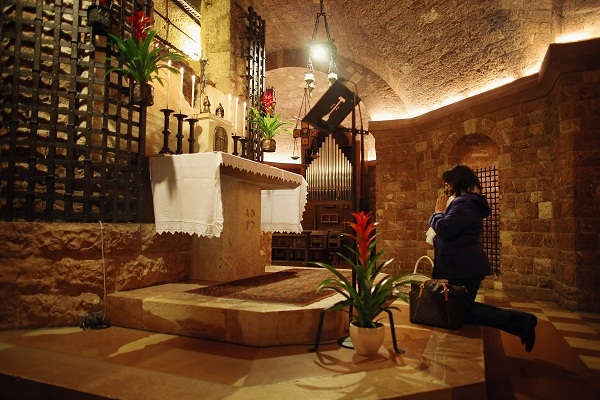Good Friday is a day for contemplation. If you have time, do read Roger Scruton’s piece in the latest issue of the Spectator. It is, among other things, a deep consideration of the damage caused by our society’s veneration of the trivial and transient. Here is a short excerpt:
Wherever we find the cult of celebrity, therefore, we find deep unhappiness. ‘Fun’ has become the highest good, but fun is always out of reach, available only in that other and unattainable world where the stars are dancing. Meanwhile envy and resentment colour the world below, and there is no relief save the pleasures of consumption.
If you want proof that our world is like that, then you should look at modern art — the thousand by-products of Duchamp’s famous urinal that have ended up in Tate Modern, and which are proof of the celebrity status of the people who produce them. Here are the monuments to a world from which beauty has been banished, and in which sensation rules in its stead. This is not art but packaging: loud supermarket colours, shocking themes and gross images like the deformed and spat-upon humanoid dolls of the Chapman brothers — all telling the same story that there is no meaning in the world, but only fun, and fun is a bore. Here is the proof that there is no such thing as real fun; that fun is an illusion in all its forms.
For all those who share my scepticism towards the life of consumption and the cult of celebrity, and who turn away from fun, I recommend a visit to Tate Modern. It is a sobering reminder of the things that the gallery does not contain, such as happiness, beauty and the sacred, the things that we celebrate, or ought to celebrate, at this time of spiritual renewal. Those are things that we value, but which we cannot consume. And because we cannot consume them they offer us consolation and a lasting refuge.
Consider beauty — the beauty of flowers and landscapes, of birds and horses, of the things we see, touch and smell as we walk in the countryside. We are entirely at one with these things. We have no desire to consume or destroy them. We look on them with gratitude, and they reflect our emotions back at us, seeming to bless us as we bless them. This is an elementary experience which we find hard to put into words. But we know that it is not fun, that it does not depend on fame or wealth or self-indulgent pleasure. It involves reconnecting to our core humanity, finding ourselves at peace in the world and at home here.
Beauty has many forms, of course, and natural beauty is only one of them. There is the beauty of art and architecture, of music and the human form. But in all its varieties beauty has a remarkable quality, which is that it offers consolation without consumption: your enjoyment does not destroy the beautiful object but simply amplifies its power. The enjoyment of beauty is never addictive, however intensely it affects us. And when we come back for more it is not out of craving or need, but rather as a homecoming to ourselves, and in order to understand what we are.
Subscribers can read the rest of the article here. Non-subscribers, you can join us today from as little as £1 an issue. All subscription details, including digital subscriptions can be found here.






Comments